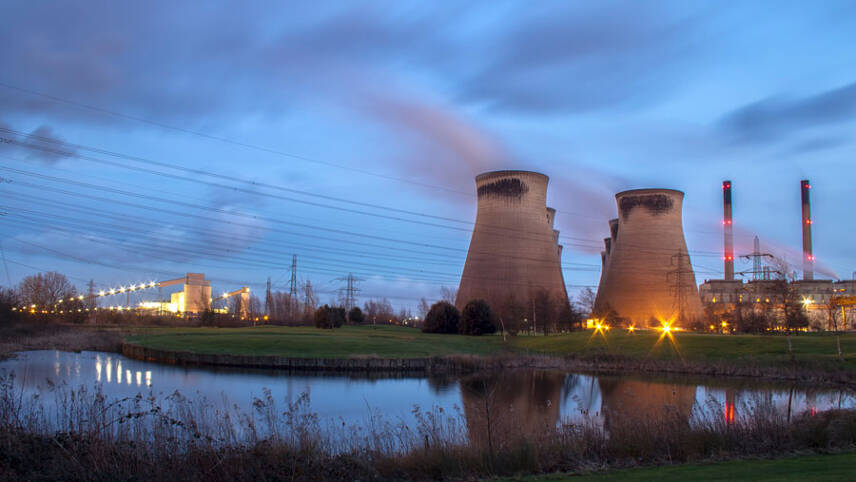Register for free and continue reading
Join our growing army of changemakers and get unlimited access to our premium content

Pictured: Ferrybridge Coal Power Station, which was decommissioned in 2016
Within that same timeframe, the economy grew by almost 80%.
The Department for Energy Security and Net-Zero (DESNZ) has attributed the cut in emissions predominantly to a shift in the energy generation mix.
In the early 2010s, renewables accounted for around 7% of the UK’s electricity generation mix while coal’s share stood at around 40%. By 2022, renewables exceeded a third of the electricity generation mix and coal’s share had plummeted to 1.5% amid concerted efforts to retire coal plants.
The Government has repeatedly been told by its climate advisory body, the Climate Change Committee (CCC), that future decarbonisation of the power system will require further policy interventions.
Moreover, Ministers will need to enact bolder policies to decarbonise other sectors which are more visible to the average person, including heating, buildings, transportation and food. The CCC’s most recent annual progress report to Parliament cast doubt on the delivery of half of the necessary emissions cuts to align with the UK’s binding net-zero goal for 2050.
Nonetheless, the Government announced the milestone in a celebratory fashion. The confirmation means that the UK kept well within its first three carbon budgets, which are legally binding.
DESNZ Secretary Claire Coutinho said: “The UK is the first major economy – of the top 20 countries – to halve its emissions. This is an enormous achievement by itself but also because we have done this in a pragmatic way.
“With some of the most ambitious targets in the world, we should be proud that we’ve over-achieved on our carbon budget for the third time in a row. We will continue to meet out targets but in a pragmatic way that doesn’t clobber extra costs onto hard-working families.”
Offshoring emissions?
The statistics relate to domestic emissions only – those generated within the boundaries of the UK and not in its global supply chain.
WWF has calculated that the UK generates almost as great a level of emissions through its international footprint as it does domestically. The NGO is imploring Ministers to draw up a plan for emissions reductions overseas and also to curb its other ‘offshored’ environmental impacts including pollution, water use and material consumption.
For now, Ministers are talking up other G20 nations’ slow progress in reducing their own domestic emissions. The USA has achieved no meaningful reduction since 1990, for example, while France has recorded a 23% decrease.
Related news: Stop approving carbon budgets without credible delivery plans, MPs tell UK Government


Achieved at the expense of and demise of heavy energy industries. Would be interested to see beyond that how this has been achieved given transport has barely moved the needle. Must be a coal/oil to gas parameter with regards domestic heating….
Greta Thunberg says these figures do not take into account CO2 emissions of imported goods and transport. When these are taken into account there has been little improvement.